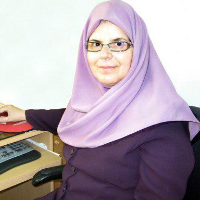Predicting Wisdom based on Critical Thinking with the Mediation of Information Processing Styles
The purpose of this study was to develop a structural equation model to measure the direct and indirect relationships of wisdom based on critical thinking with the mediation of components of information processing styles among Tehran University students.
The method of the present research was in the field of descriptive-correlation designs and the analysis method was structural equation modeling. The statistical population of the present study consisted of all working male and female students studying in master and doctoral degrees of Tehran University in the academic year of 2018-2019, who were selected as the research sample. The sample size was 357 people based on the minimum number of subjects required for the obvious variables in the model. The sampling method was multi-stage random clustering. In order to collect data and measure the research variables, the wisdom questionnaires of Schmidt et al. (2012), Ricketts' critical thinking (2003) and Pasini and Epstein's information processing styles (1999) were used. Data analysis was done using SPSS-23 and AMOS-22 software. The evaluation of the research model was done using structural equation model fit indices and path analysis technique.
The examination of correlation coefficients showed that critical thinking is capable of directly predicting wisdom and has a direct and significant effect. Determining the significance of the indirect effect also indicates that the components of information processing styles (rational information processing P < 0.44 and intuitive processing P < 0.26) had a mediating role and its mediating contribution between the variables was completely positive and significant.
The analysis of the coefficients from the model analysis showed that it explains 61% of the variance of wisdom, 32% of the variance of rational information processing, and 3% of the variance of intuitive information processing. In general, it can be concluded that the critical thinking of students should be given serious attention, because in addition to affecting the wisdom of students, it also affects their information processing styles, which results in the students at the level of higher education, on the one hand, being responsible for interpretation debates and decisions. Wise and realistic decisions are made, and on the other hand, they acquire the ability to use new educational methods and technologies in the process of solving real life problems and the importance of dealing with them wisely.
-
Effective of Generative Learning on the Based Load Cognitive Pattern on Math Memorization 7th Grade Students
Soheila Hashemi*, Seyyed Abolqasem Seyedan, , Ali Asghar Firouzjaeian
Journal of research On Issues of Education, -
The Effectiveness of Direct Current Transcranial Brain Stimulation and Cognitive Rehabilitation on Working Memory and Reading Efficacy of Students with Dyslexia
Hamed Sarhangpour*, , Vahid Nejati, Soheila Hashemi
Quarterly Journal of Child Mental Health, -
Prediction of Wisdom Based on Components of academic experiences Through the Intermediation of Cognitive flexibility
*, , Soheila Hashemi, Habibollah Naderi
Modern psychological research, -
The Role of Academic Experience, Critical Thinking and Cognitive Flexibility in Predicting the Wisdom of Female Postgraduate Students of University of Tehran
*, , Soheila Hashemi, Habibollah Naderi
Women’s Health Bulletin, Oct 2021




